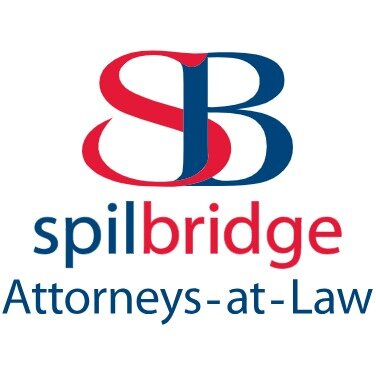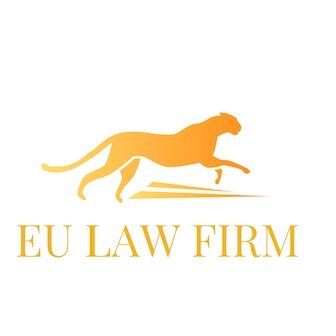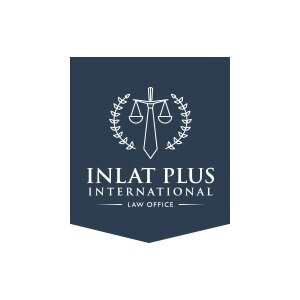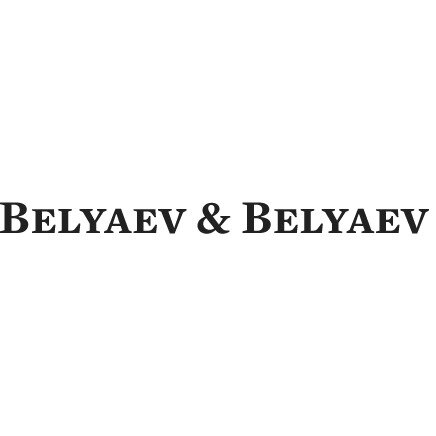Best Water Law Lawyers in Latvia
Share your needs with us, get contacted by law firms.
Free. Takes 2 min.
Or refine your search by selecting a city:
List of the best lawyers in Latvia
About Water Law in Latvia
Water Law in Latvia governs the use, management, and protection of water resources such as lakes, rivers, groundwater, and the coastal area of the Baltic Sea that lies within Latvian jurisdiction. The legal framework establishes who can use water resources, under what conditions, and how water-related disputes are resolved. The main piece of legislation is the Water Management Law, which incorporates European Union water directives and ensures sustainable water use, pollution control, and public involvement in water management.
Why You May Need a Lawyer
Several situations may require professional legal help in the field of Water Law in Latvia. If you are involved in property development near a water body, require permits for water extraction or discharge, face water pollution allegations, or are affected by flood prevention measures, legal guidance is crucial. Businesses and individuals often require assistance to comply with complex water regulations, settle disputes over water rights or pollution claims, or participate in environmental impact assessments. Lawyers specialized in Water Law can navigate administrative processes, engage with governmental authorities, and protect your interests in negotiations or litigation.
Local Laws Overview
The Water Management Law (Ūdens apsaimniekošanas likums) is the central regulation for water use and protection in Latvia. It outlines the principles of water resource management, including the requirement for permits for activities that affect water such as abstraction, discharge, or construction on water bodies. The law harmonizes with the EU Water Framework Directive, emphasizing integrated management of river basins, public involvement, and prevention of water pollution. The law also addresses flood risk management, protection of drinking water sources, and responsibilities for infrastructure maintenance. Local municipalities play a significant role in implementing national policies and issuing permits for certain water uses.
Frequently Asked Questions
What types of water use require a permit in Latvia?
Permits are usually required for activities such as abstraction (taking water), discharge of wastewater, construction near water bodies, and operating water supply or treatment plants. This includes both commercial and certain non-commercial uses.
How are water rights determined in Latvia?
Water under Latvian law is a public resource. Rights to use water are granted through permits or authorizations issued by state or municipal authorities, depending on the scale and nature of the use.
What is the procedure for obtaining a water use permit?
Applicants must submit documentation detailing their planned water-related activities, potential environmental impacts, and proposed mitigation measures. The authorities review applications under the Water Management Law and related environmental regulations.
Who is responsible for controlling water pollution?
Responsibility lies primarily with the polluter, but state and municipal environmental inspectorates also monitor compliance and enforce sanctions in cases of unlawful pollution.
How does Latvia address flood risk and prevention?
Latvia has flood risk management plans, especially in river and coastal areas. These measures involve both local municipalities and national authorities, and public consultation is required when preparing flood prevention projects.
Is public access to water bodies guaranteed?
Latvian law generally secures public access to natural water bodies, though there are exceptions for private property or where restrictions are needed for environmental protection or public safety.
What should I do if my property is affected by a water dispute or flooding?
Seek legal advice to clarify your rights and obligations. You may need to contact local authorities, document the situation, and in some cases pursue legal claims or appeal administrative decisions.
Are there restrictions on building near water bodies?
Yes, construction activities near lakes, rivers, or the sea require compliance with setback distances and often need special permits to safeguard the environment and manage flood risk.
How does the law address groundwater protection?
Groundwater extraction and pollution are strictly regulated. Permits are typically needed for significant groundwater use, and strict controls prevent hazardous discharges and protect drinking water resources.
Can I appeal permit decisions or sanctions under Water Law?
Yes, individuals and companies can appeal decisions by administrative bodies either internally or, if necessary, in court. Timely legal advice is crucial to navigate the appeal process effectively.
Additional Resources
Individuals seeking more information on Water Law in Latvia can consult the following resources:
- Latvian Ministry of Environmental Protection and Regional Development (VARAM): The central governmental body overseeing environmental policy, including water resource management.
- State Environmental Service (Valsts vides dienests): Responsible for issuing permits, monitoring compliance, and enforcing environmental legislation.
- Local Municipalities: For permits, flood risk information, and local water management questions.
- Latvian Water and Waste Water Works Association: For guidance on water supply and sanitation regulations.
- Environmental NGOs: Such as “Latvijas Dabas fonds,” which may provide advocacy and public information.
Next Steps
If you need legal assistance with a water-related issue in Latvia, consider the following steps:
- Document your situation clearly, including relevant maps, permits, correspondence, or evidence of environmental impacts.
- Contact relevant authorities such as your local municipality or the State Environmental Service for initial guidance.
- Consult a lawyer with experience in Water Law to assess your rights, obligations, and available remedies.
- Review the procedural requirements for applications, appeals, or disputes before taking action.
- Stay informed about changes to legislation that may affect your rights or responsibilities.
Lawzana helps you find the best lawyers and law firms in Latvia through a curated and pre-screened list of qualified legal professionals. Our platform offers rankings and detailed profiles of attorneys and law firms, allowing you to compare based on practice areas, including Water Law, experience, and client feedback.
Each profile includes a description of the firm's areas of practice, client reviews, team members and partners, year of establishment, spoken languages, office locations, contact information, social media presence, and any published articles or resources. Most firms on our platform speak English and are experienced in both local and international legal matters.
Get a quote from top-rated law firms in Latvia — quickly, securely, and without unnecessary hassle.
Disclaimer:
The information provided on this page is for general informational purposes only and does not constitute legal advice. While we strive to ensure the accuracy and relevance of the content, legal information may change over time, and interpretations of the law can vary. You should always consult with a qualified legal professional for advice specific to your situation.
We disclaim all liability for actions taken or not taken based on the content of this page. If you believe any information is incorrect or outdated, please contact us, and we will review and update it where appropriate.
Browse water law law firms by city in Latvia
Refine your search by selecting a city.
















